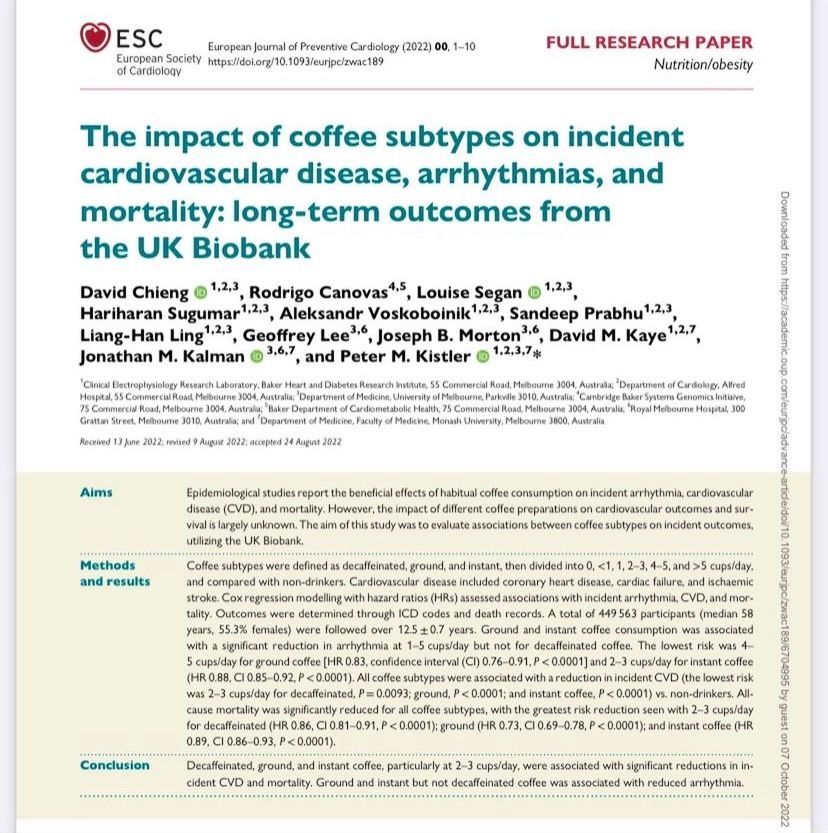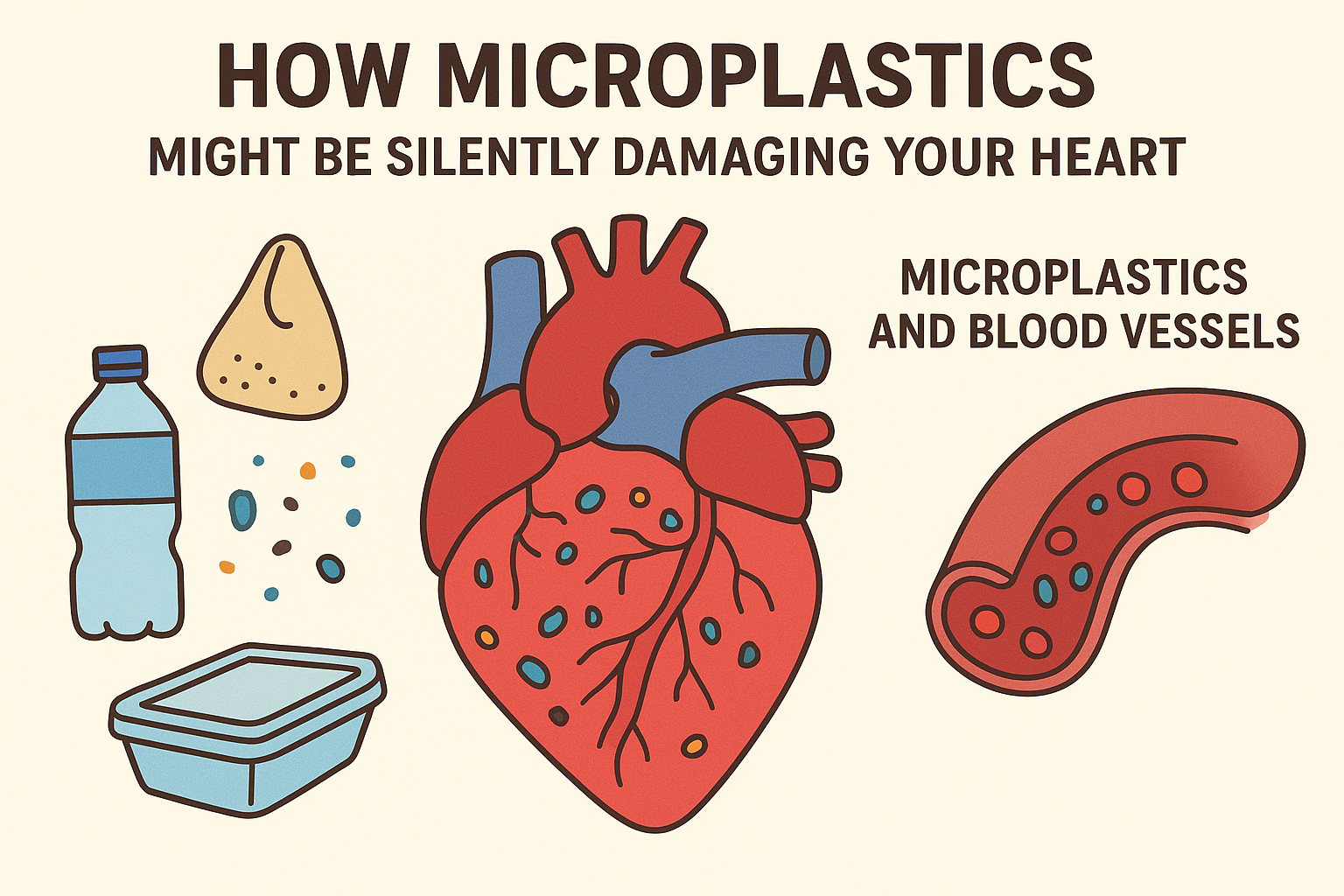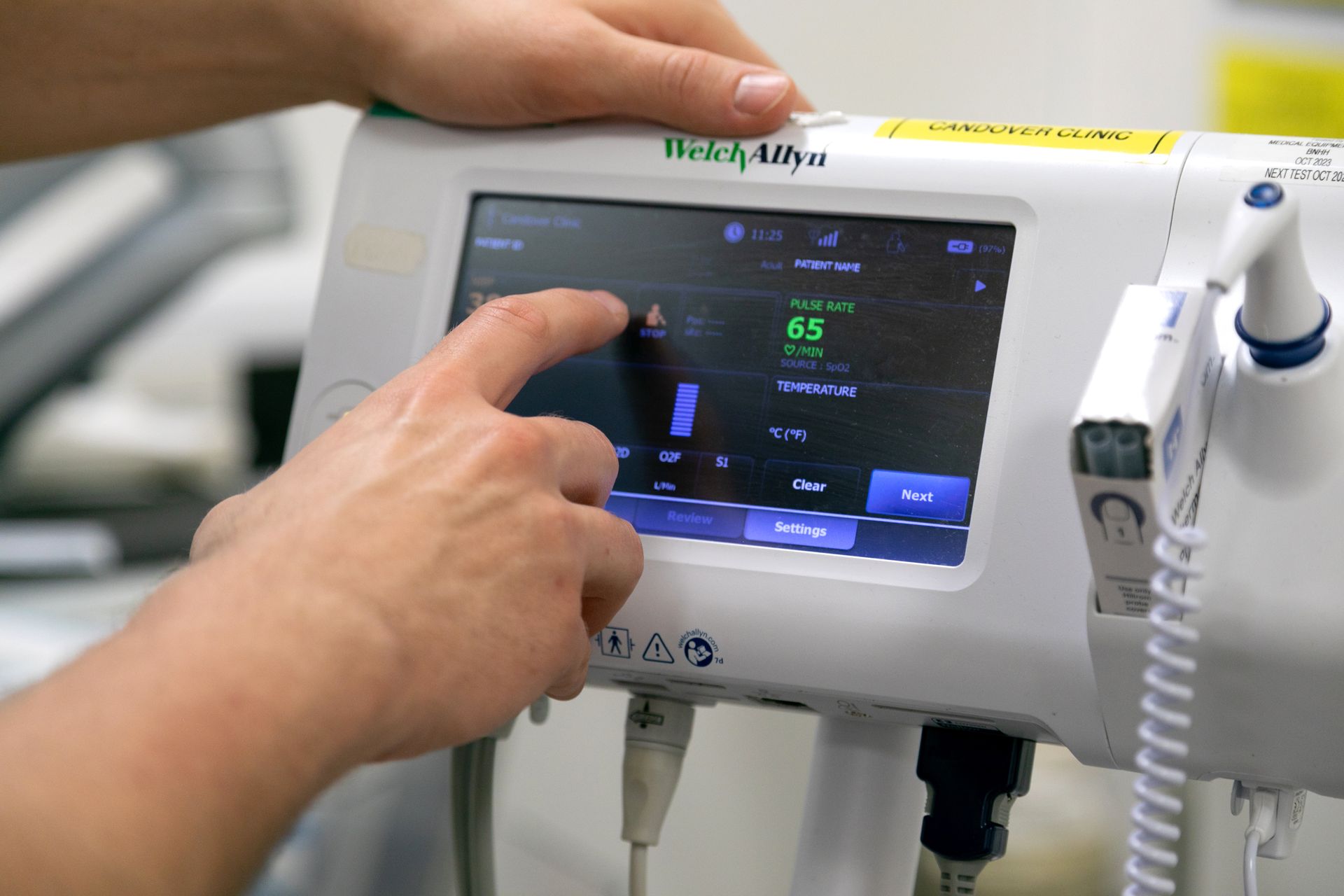Coffee and Heart Health.

COFFEE
(decaffeinated, ground and instant) in an amount of 2-3 cups daily,
reduces risk of cardiovascular disease and risk of dying.
Showed this study published in the
European Journal of Preventive Cardiology in September 2022 (abstract above).
It was a large clinical trial, which included over
440 000 participants with a median age of 58 years.
55.3% of included individuals were female and the follow up lasted for over 12 years (12.5 +/- 0.7 years).
Interestingly, only ground and instant but not decaffeinated coffee demonstrated reduction in incidence of arrhythmia.
Link to the article below.
https://bit.ly/3DXpN6K
Coffee and Heart Disease.
Introduction:
Coffee is one of the most widely consumed beverages worldwide, known for its invigorating properties and rich flavour. However, there has been a long-standing debate regarding the effects of coffee on cardiovascular health, particularly its association with heart disease. Below
is described the relationship between coffee consumption and heart disease, examining the latest scientific research and shedding light on the potential benefits and risks.
Main text:
I. Coffee Composition and Cardiac
Effects: Coffee contains various bioactive compounds, including caffeine, polyphenols, and antioxidants, which can exert both positive and negative effects on the cardiovascular system. Caffeine, the most well-known component of coffee, acts as a stimulant and can temporarily increase blood pressure and heart rate. However, the impact of caffeine on heart health varies among individuals, and habitual coffee drinkers may develop tolerance to its effects
over time.
II. Coffee Consumption and Heart
Disease Risk: Research on the relationship between coffee consumption and heart disease risk has yielded conflicting results. Several studies have suggested a potential protective effect of moderate coffee consumption against certain cardiovascular conditions, such as coronary artery disease, heart failure, and stroke. On the other hand, excessive coffee intake, particularly when combined
with unhealthy lifestyle habits like smoking or a poor diet, may increase the risk of heart disease.
III. Impact of Coffee on Blood Lipids:
Coffee consumption has been linked to alterations in blood lipid profiles, including increased levels of total cholesterol, LDL cholesterol, and triglycerides. However, these effects are generally modest and may vary depending on factors such as brewing method and coffee preparation.
IV. Coffee and Blood Pressure:
The relationship between coffee consumption and blood pressure remains a topic of interest. Acute consumption of coffee can lead to a temporary rise in blood pressure, mainly due to caffeine's vasoconstrictive effects. However, this effect is generally mild and tends to diminish with regular coffee intake. Individuals with hypertension or those who are particularly sensitive to caffeine may need to monitor their coffee consumption to manage blood pressure effectively.
V. Individual Variability:
It is important to recognize that individual responses to coffee can vary based on individual factors. Personal factors, such as age, overall health status, and lifestyle habits,
should also be taken into account when considering the relationship between coffee consumption and heart disease risk.
VI. Moderation and Individualised Approach:
The key to enjoying coffee while maintaining heart health lies in moderation and individualized consumption. Moderate coffee intake, typically defined as 3-4 cups per day, is generally considered safe for most individuals. However, it is crucial to avoid excessive consumption, particularly when accompanied by other risk factors like smoking or a sedentary lifestyle.
Conclusions:
The relationship between coffee consumption and heart disease is complex and multifaceted. While moderate coffee consumption is unlikely to pose significant risks and may even have
potential benefits for cardiovascular health, excessive intake and unhealthy lifestyle habits can increase the risk of heart disease. It is crucial to approach coffee consumption with moderation, considering individual factors and seeking personalized guidance when necessary. Additionally, focusing on a well-rounded heart-healthy lifestyle, including regular exercise, a balanced diet, and avoiding tobacco use, is paramount for maintaining optimal cardiovascular health.
Private Cardiologist in Winchester and Private Cardiologist in Basingstoke
At our two locations at Sarum Road Hospital in Winchester and Candover Clinic in Basingstoke our private heart specialist will ask you about caffeine consumption and provide you with a private heart advice and private treatment. We offer to our patients private echocardiograms, heart scans, blood pressure monitoring and heart beat/Holter monitoring.











